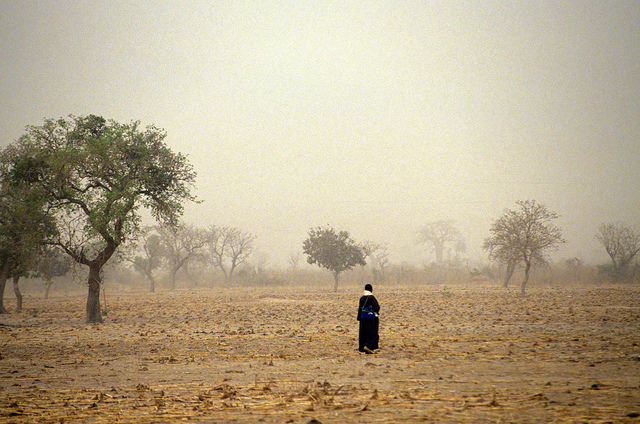
Event description:
The interplay of a range of drivers with increasing environmental change, including climate change, will lead people to leave their communities. Some will leave because of the effects of sudden-onset weather-related disasters, others because the long-term effects of environmental change have destroyed their livelihoods. These planned relocations can occur reactively after a major sudden-onset disaster – when it is determined that people simply cannot return to their communities because the physical habitat is unsafe. In other cases, relocation will be planned as an anticipatory measure where hazards have increased the risk of continued habitation to unacceptable levels. The 2015 Conference of Parties (COP) to the United Nations Framework Convention Climate Change (COP 21) requested to develop recommendations for integrated approaches to avert, minimize and address displacement related to the adverse impacts of climate change. Planned relocation is one such approach.
The Institute for the Study of International Migration at Georgetown University, the UNHCR, IOM, and the Institute for the Environment and Human Security of UN University have been working to develop guidance for States and other stakeholders on planned relocation in the context of natural disasters and the slow onset effects of climate change. The Guidance on Planned Relocations sets out general principles to assist States and other actors faced with the need to assess whether and how to undertake these programs. The next step is the development of practical tools, including specific measures and examples of good practices to assist States and other interested actors in translating these general principles into concrete laws, policies, plans, and programs. This KNOMAD seminar will discuss expertise on planned relocation to bear on the development of such practical tools.
Elizabeth Ferris is Research Professor with the Institute for the Study of International Migration at Georgetown University’s School of Foreign Service and also serves as a Non-resident Senior Fellow in Foreign Policy at the Brookings Institution. From January-September 2016, she also served as Senior Advisor to the UN General Assembly’s Summit for Refugees and Migrants in New York.
From 2006-2015, she was a Senior Fellow and co-director of the Brookings-LSE project on Internal Displacement where she worked to support understanding and protection of internally displaced persons. Prior to joining Brookings, she spent 20 years working in the field of humanitarian assistance, most recently in Geneva,
Switzerland at the World Council of Churches. She has also served as the director of the Church World Service’s Immigration and Refugee Program, as research director for the Life & Peace Institute in Uppsala, Sweden and as a Fulbright professor at the Universidad Autónoma de México. Her teaching experience has included positions at Lafayette College, Miami University and Pembroke State University. She has written extensively on refugee, migration and humanitarian issues, including The Politics of Protection: The Limits of Humanitarian Action (Brookings Institution Press, 2011) and most recently, Consequences of Chaos: Syria’s Humanitarian Crisis and the Failure to Protect, with Kemal Kirsici (Brookings Institution Press, 2016). She received her BA degree from Duke University and her MA and PhD degrees from the University of Florida.
Alice R. Thomas is Alice Thomas joined Refugees International (RI) in 2010 to launch the Climate Displacement Program which advocates on behalf of vulnerable communities displaced by extreme weather and climate change. Since joining RI, Ms. Thomas has conducted more than a dozen independent assessments of the protection and assistance needs of people displaced by climate-related disasters including Hurricane Matthew in Haiti in 2017, the 2015/2016 drought in Zimbabwe, historic flooding and landslides in Myanmar in 2015 and Super-Typhoon Haiyan in the Philippines in 2014. She has presented her findings to high-level government and U.N. officials, and at numerous think tanks including the Brookings Institution and the Wilson
International Center for Scholars. She is also a member of the Advisory Committee to the Platform on Disaster Displacement (Nansen Initiative) and a member of the Advisory Group on Climate Change and Human Mobility which provides technical support to state parties to the U.N. Framework Convention on Climate Change. Prior to joining RI, Ms. Thomas was a staff attorney in the International Program at EarthJustice where she devised legal strategies to mitigate climate pollution and address climate impacts on vulnerable populations. From 2002 to 2006, she served as Deputy Director of the American Bar Association’s Asia Law Initiative where she oversaw environmental good governance programs in Asia. She has a law degree from the University of Wisconsin Law School and a Bachelor’s degree in History from Princeton University.
Speakers




